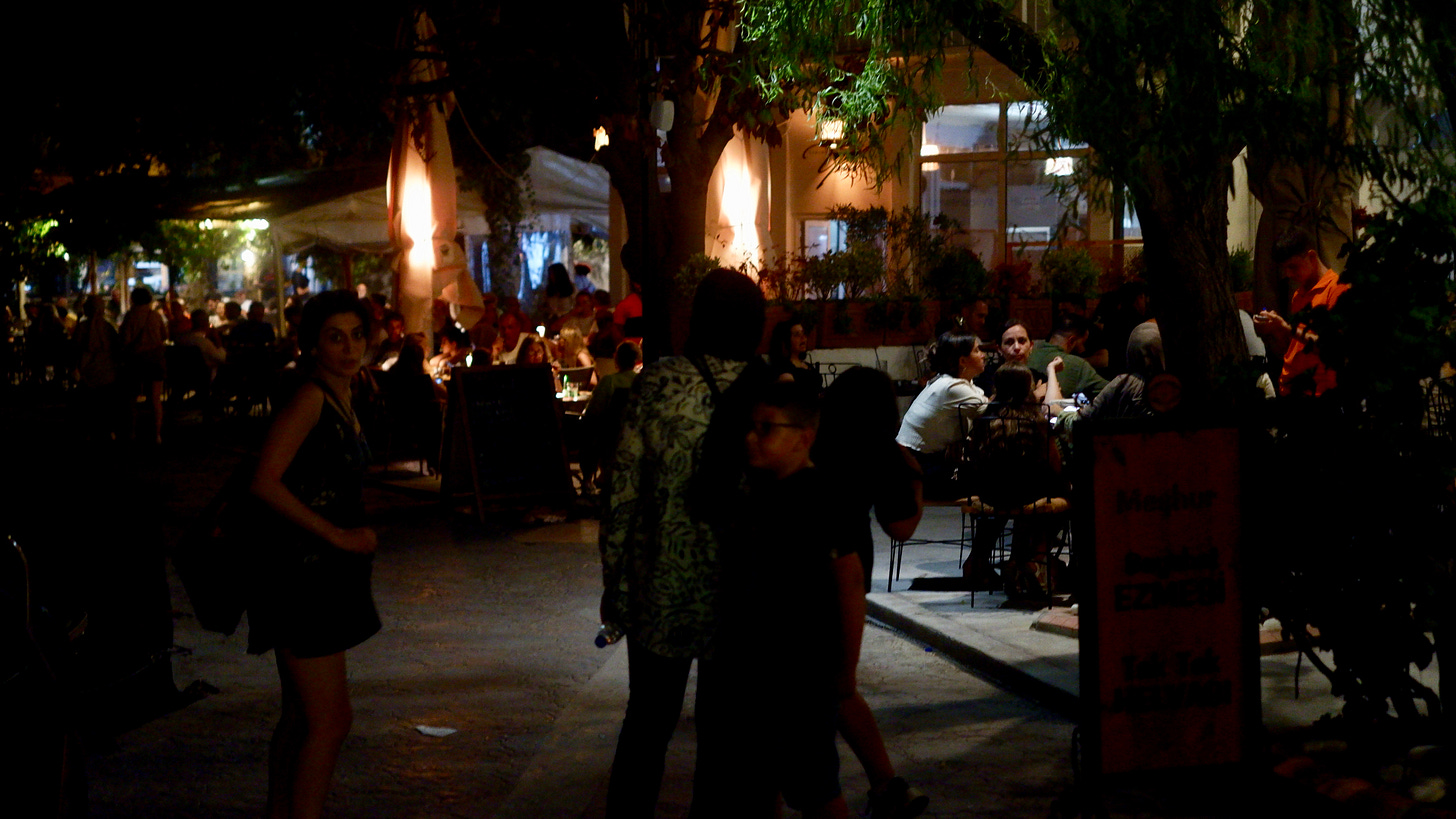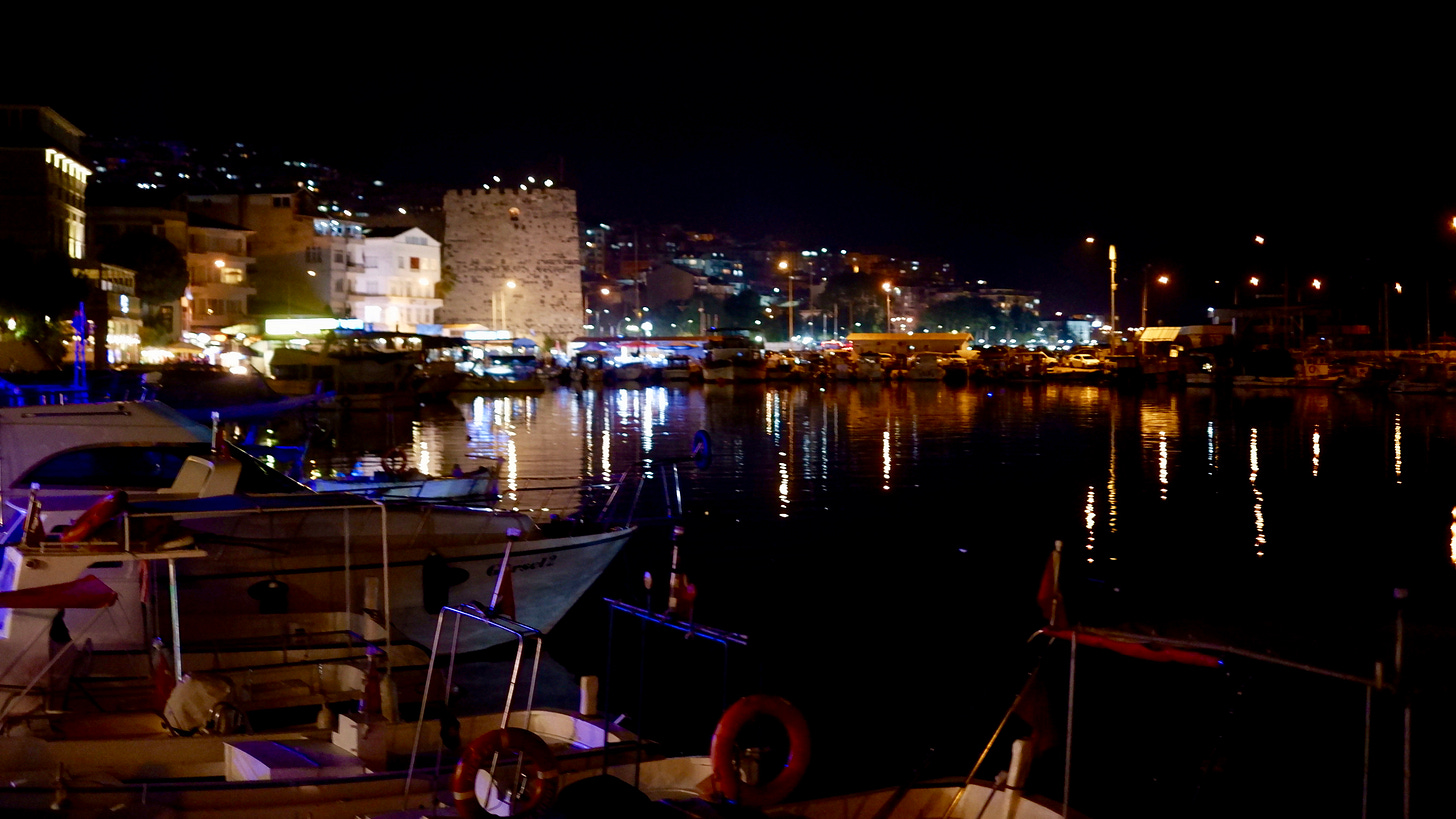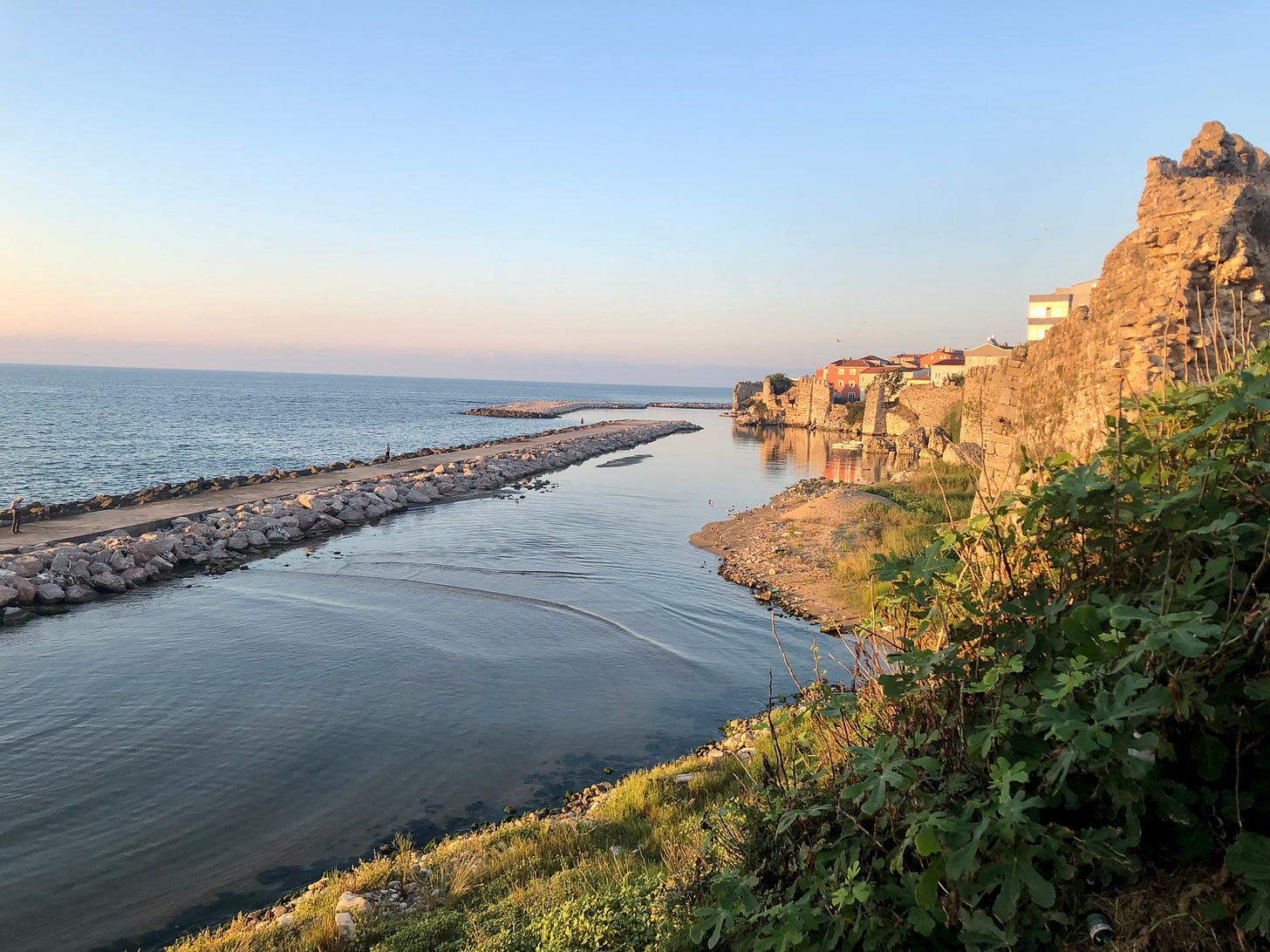Stuck in traffic in Sinop: The problematic popularity of Turkey's happiest city
What happens when a city develops such a keen reputation for being calm and pleasant that it ends up becoming crowded and congested?

When I booked a Thursday evening flight from Istanbul to Sinop, I wasn’t expecting it to be completely full. Neither did I expect there to be traffic between the airport and the gorgeous city of 60,000 that boasts an unmatched location on a peninsula that gazes out over two sides of the Black Sea coast and a rich history spanning millennia that has left a lasting and formidable impact on its urban fabric.
It is apparent that there are not enough roads in the greater Sinop area to accommodate the heavy car traffic that descends upon the city during the holiday season. This past Saturday evening, the city center and adjacent coastal parks were bustling in spite of the stifling August humidity, and it seemed like Sinop’s population had at least doubled over the weekend due to the arrival of thousands of tourists.

Sinop has long held the distinction of being Turkey’s happiest city for years, according to official statistics. 2023 was no exception, and this accolade in conjunction with its historic legacy, beautiful scenery, serene beaches, and laid-back attitude have resulted in a surge in Sinop’s popularity. In 2010, upwards of half a million tourists came to the city, while that number is expected to reach two million by the end of this year.
The tourism revenue has bolstered development, resulting in the construction of new buildings overlooking the sea, and a flurry of new restaurants, hotels, cafes and bars opening in the city center within the past few years alone. Rather than a sleepy city, Sinop is now a buzzing resort town, and many residents, current and former, are not happy about this.
Several people who grew up in the city and still have family there said it no longer resembles the Sinop they knew, with one couple who lives out of town telling me that when they come back home, they prefer to spend time at the secluded beaches and more rural areas in the district rather than hang out downtown, where fights are known to break out. Just last month, a skirmish near a nightclub in the heart of the city resulted in the stabbing death of one man.
Sinop is experiencing what a number of cities on the Aegean coast—such as Bodrum, Çeşme, Kuşadası and to a lesser extent Ayvalık—already went through: the transformation from peaceful coastal outposts to ostentatious vacation spots with luxurious hotels and beaches with pricy entry fees.
Nevertheless, Sinop is a small city loaded with treasures. A fortress dating back to the 8th century BC and its walls wind throughout the city in large stretches, leaving an imposing stamp in the center of town, where the main tower looms over the sea and dominates the skyline. An infamous prison was built within the northwestern edge of the historic castle in the late-19th century, and held a number of prominent political prisoners in the early years of the Turkish republic, including one of the country’s most beloved novelists, Sabahattin Ali. The prison is now a museum, and half of it was was recently restored in an elegant fashion where it is open to the public 24/7 and integrated with the city. In the front facing the sea lies a smartly-designed, newly-built park complete with palm trees where groups of families have picnics well into the evening. At the center of the park stands a freshly-sculpted statue of Ali with his trademark circular rimmed glasses.
Across the street from the opposite end of the hulking prison, which resembles nothing less than a dungeon and held prisoners until 1997, there is a statue of Sinop’s most famous resident, the Greek philosopher Diogenes, holding a lantern with his dog by his side. The cantankerous hermit was banished from his hometown and settled in Athens, but the city hasn’t forgotten about him, though a trend of naming shops and establishments after him seems to have died down over the years.
Just minutes away by car, there are sandy beaches tucked into coves where the water is perfectly cool and the night sky gleams with endless stars that can’t be seen from bigger cities polluted by artificial light. Scruffy, speckled street dogs looking like they collectively broke out of the pound years ago can be found everywhere, but they’re all friendly.
While Sinop has become popular, crowded, and clogged with cars, it doesn’t take long to escape the traffic and throngs of people, and there is no better way to do so than on foot. Heading up a hill to the northern end of the peninsula in the evening, all of a sudden the streets just above downtown are empty and the air is heavy with calmness. One public school, out for the summer, is perched atop the hill on a large, leafy strip of land with an enviable location staring out at the Black Sea. A random shepherd leads a flock of several dozen sheep through the grounds, then disappears.
As soon as Sinop’s main street ends, so does the city, and one is greeted with the northern side of the Black Sea, where waves rumbling from its choppy, aquamarine waters crash against rocks just below the opposite corner of the ancient walls, still standing in vast, austere sections. The grapefruit sunset burns softly across the sky, and a handful of beachgoers enjoy an evening swim.
Later that night back in the center of town, a cool cloud of crisp fog blanketed the city, cutting into the relentless humidity. After a dinner of fried black scorpion fish, meze and rakı, a friend and I amble up the street alongside the marina for a couple beers. We sat at a table at the edge of the sea, lined with small boats. Suddenly I hear the sound of gasping for breath and I wonder, who on earth would swim around here? I looked down at the water, and it was a young sea otter, popping up to the surface and rollicking in between parked watercraft.
I had never seen one before anywhere, and it was one of those moments when you are filled with awe at the resistance and strength of nature in the face of the evil and horror we have inflicted upon it. Leaving the bar, the city was now empty save for some late-nighters enjoying drinks on the grass by the seaside promenade. Despite undergoing a massive surge in popularity resulting in profound changes, it’s not hard to see why Sinop still holds the title of Turkey’s happiest city.







İt was a joyful reading. Thanks for comprehensive research and enlightening observations!